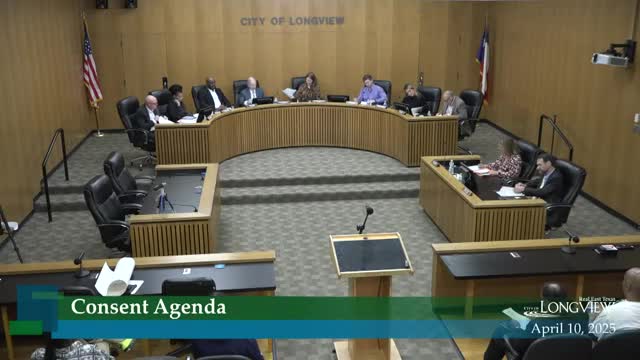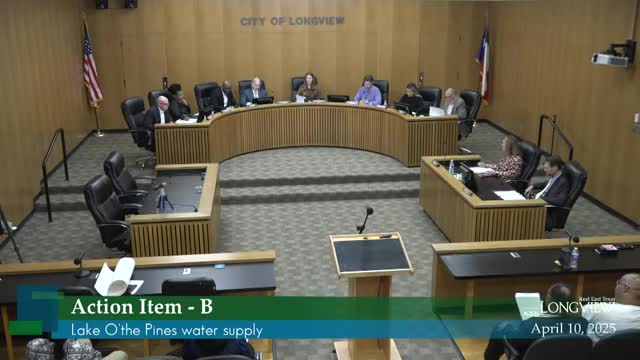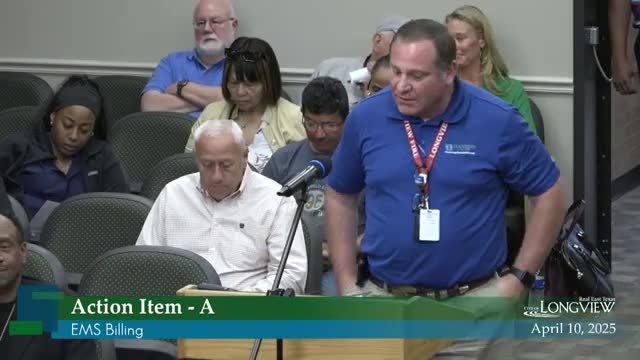Article not found
This article is no longer available. But don't worry—we've gathered other articles that discuss the same topic.

Greater Longview United Way outlines GLOW partnerships, literacy programs at council meeting

Votes at a glance: Longview City Council actions on zoning, consent agenda and contracts (April 10, 2025)

Longview adopts resolution opposing large-scale sales or leases of raw water from Lake of the Pines

